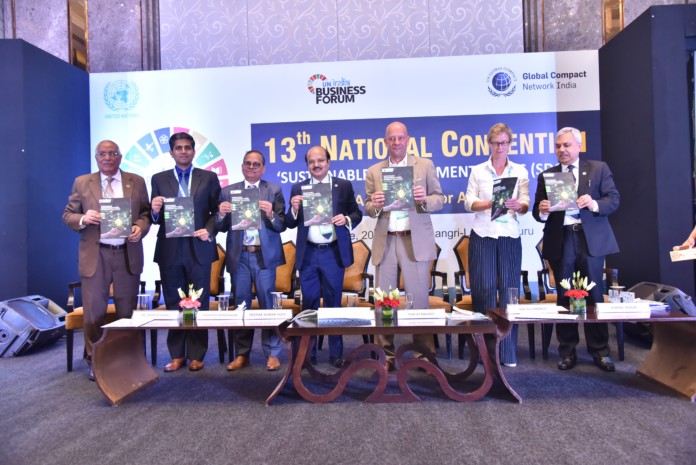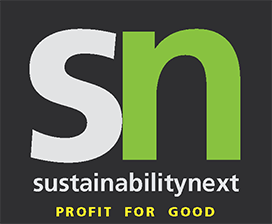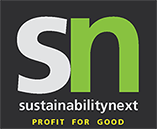
There was considerable optimism about how India is very well placed to address the challenges posed by UN SDGs. More than that, how Indian business can take advantage of the $ 1 trillion business opportunities that will spring up while trying to achieve the SDGs, in the next 12 years, at the recently held dialogue in Bengaluru. The dialogue cum awards event was organized by Global Compact Network India (GCNI). The theme was ‘SDGs: A Blueprint for Action”
The big question is, are Indian businesses ready for this bonanza? An Accenture 2018 CEO survey says 86% of CEOs it surveyed said they “are aware of how their companies can contribute to the SDGs.” The study tried to capture insights from Indian CEOs’ about how they defined SDGs as a framework for action. The survey had responses from 20 CEOs. Accenture has been doing this survey since 2007.
Here’s more. As per UNGC, “more than 50% of the progress towards the SDGs will come from India. In parallel, India presents 25% of the $4 trillion global opportunity.”
The UN India Business Forum had a meeting here a day prior to the gala event early June 2018. It was closed doors. The essence of the outcome, a couple of CEOs said, was that the transition from awareness of the opportunity to actually realizing it is still a long road. The critical impediment is public policy deficit, ambiguity and leadership vacuum in most sectors. To top it, in the World Bank’s ease of doing business India is ranked 100th in 2018, although it improved by 30 ranks compared to 2017.
Trust Deficit Between Government and Business
The biggest impediment, according to Yuri Afanasiev, UN Resident Coordinator in India: “In India, business and Indian government don’t trust each other.” There’s clearly some fundamental trust building exercise needed before embarking on an ambitious $1 trillion opportunity. “The focus should be on how we create a win-win formula between the government and business.”
However, more than anyone else, Yuri praised India for its significant achievements in the last few years. He said: “Solutions for SDGs are being developed in India for the world. India is solving problems that have taken other countries decades to solve. India can lead the way.” He said India’s one dollar cost of acquiring digital footprint of an individual is a phenomenal achievement.
GCNI’s Blueprint for Action
- Today focus is on compliance. Companies need to leapfrog to embedding sustainability in their DNA
- Need for more partnership approach to translating business opportunity into actual business on the ground
- Leaders should inspire and advocate so that late comers can catch up faster
- Invest heavily on health and education
- Inclusive development so benefits reach larger community
- Create an index to measure organizational performance for SDGs
Winners of Excellence in Sustainable Practices
GCNI announced its 2nd Innovative Practices Awards on SDGs during the event. GCNI received over 100 nominations in areas such as Food Security, Poverty Alleviation, Clean Energy, Health, Education, Gender Equality, and Creation of Sustainable Cities.
- Corporate Private Sector: TATA Steel Ltd
- Tata Steel’s Thousand Schools Projects aim to engage children meaningfully and inculcate the habit of going to school and learning, enhance involvement of the community in school governance and introduce Learning Enrichment Program (LEP) – a component of Thousand Schools Project. This project is an important CSR intervention of Tata Steel in the education sector of Odisha.
- Corporate Public Sector: ONGC
- OCPF – AES (Agriculture Extension Services) Project aimed at Income enhancement of small and marginal farmers in Northern Karnataka. OCPF-AES project was initiated as Soil health improvement and yield enhancement program. In span of four years, project went on to institutionalize the project farmers into “Producer organizations” (FPOs) and integration of these FPOs into the existing market value chain. In 1st phase, seven (7) Farmer Producer Organizations were formed in districts of Gulbarga, Bidar and Raichur.
In phase II, emphasis is largely on making these FPOs sustainable through market integration, infrastructure support and convergence with various state-sponsored developmental schemes.
- NGO: India Society of Agribusiness Professionals & National Stock Exchange of India Limited Foundation (NSE)
- Through recently incorporated NSE FOUNDATION, the NSE-HelpAge Project “Shraddha” – Towards Active and Healthy Ageing has taken shape from a need for establishing an alternate scale-able model to mainstreaming elderly by restoring a sense of their own value, strength and their inherent capacity to handle life’s problems. Project Shraddha aims at promoting Active and Healthy Ageing among elderly through Self Help collectives
- Business School: S P Jain Institute of Management & Research, Mumbai
- Under its Non-Classroom Learning, the unique projects of Abhyudaya and Development of Corporate Citizenship aims at addressing the societal issues in Urban and Rural India.
Accenture CEO Survey of UN SDGs






